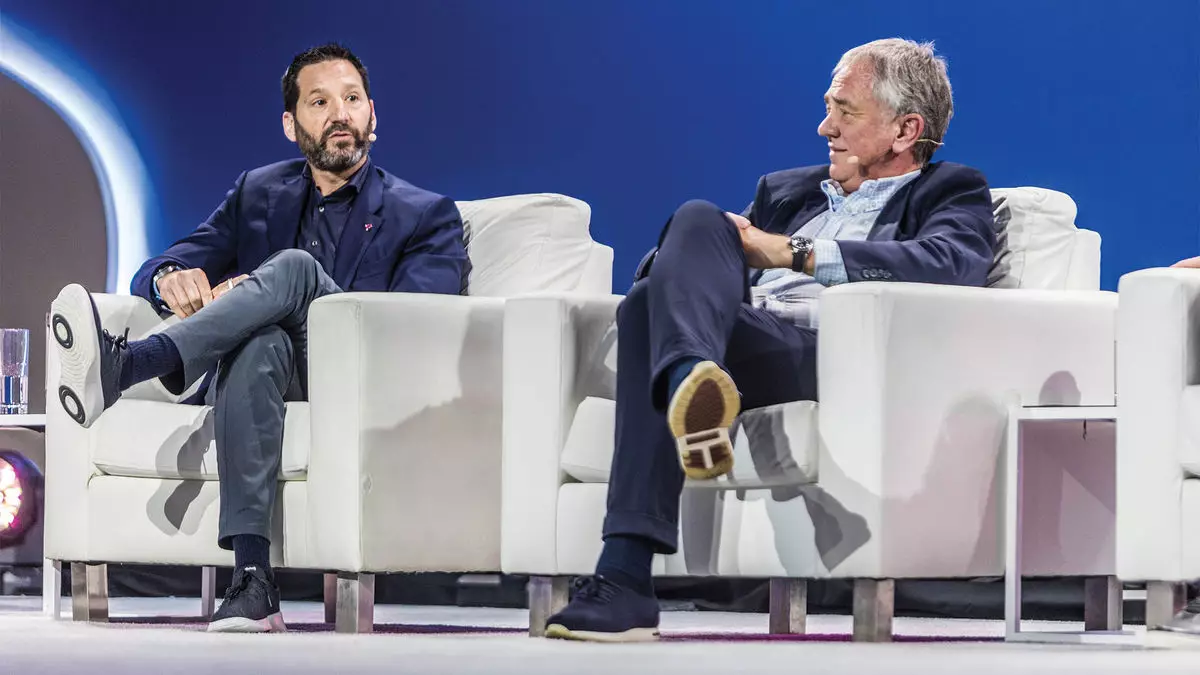The cruise industry is facing waves of economic uncertainty; however, executives remain steadfast in their belief that resilience will carry them through these turbulent times. At the recent Seatrade Cruise Global conference in Miami Beach, leaders from various cruise lines discussed customer behavior shifts influenced by financial fluctuations. These conversations revealed an industry grappling with a delicate balance between caution and optimism.
As economic indicators flicker unpredictably, the apprehension experienced by consumers becomes palpable. Harry Sommer, the CEO of Norwegian Cruise Line Holdings, voiced an optimistic outlook tinged with realism. While he admitted that the early April stock market volatility induced temporary anxiety within consumer demographics, he suggested that the cruise segment has historically shown strong recovery. Sommer reassured stakeholders, “Two shaky days in the stock market do not have us changing our long-term financial strategy and models.” Through his lens, adaptability is fundamental, signifying that the industry’s foundational strategies remain intact even when external forces manifest unpredictably.
Consumer Behavior: A Reflection of Financial Climate
The ripple effects of economic turmoil don’t merely affect stock prices; they subtly reshape consumer habits and purchasing decisions. Carnival Corp. CEO Josh Weinstein articulated a sentiment many in the industry can resonate with: uncertainty breeds caution. “They’re trying to figure out what does that mean for us?” he commented, articulating the angst shared by both businesses and consumers. This moment of hesitation reflects broader economic anxieties where every travel choice is assessed against financial stability.
Ken Muskat, president of Scenic Group USA, emphasized a more cautious approach from potential travelers. Acknowledging a palpable slowdown in bookings, he pointed out that this isn’t necessarily a sign of cancellation but rather a moment for consumers to engage in due diligence. Potential travelers seem to be increasingly diligent, taking the time to evaluate their options carefully before diving into commitments, a shift driven by both a cautious economic mindset and an urge for more informed decision-making.
The Indelible Value of Experiential Travel
Despite current hesitations, industry leaders are not just crossing their fingers and waiting for recovery; they are actively framing travel as an essential and valuable experience amidst economic uncertainty. Muskat’s assertion—that experiential travel will outweigh materialistic spending—serves as a beacon of hope. As budgets tighten, the industry’s unique value proposition gains strength—crafting memories, discovering new destinations, and enjoying the open seas remain pertinent pursuits that consumers are likely to prioritize.
In tandem, Sommer and Weinstein echoed the optimism that consumer behavior is inherently cyclical. History suggests that economic downturns may temporarily stall spending, but once the dust begins to settle, travelers often leap back into the market with renewed enthusiasm. The first quarter statistics provided by Weinstein illustrate glimmers of resilience; Carnival’s yields exhibit a robust 7% increase compared to last year, indicating an underlying trust in the brand that may reward patience.
Adaptive Strategies Amidst Political Winds
Navigating the current economic landscape entails more than just catering to consumer sentiments; it also requires an acute awareness of the political environment. While Charles “Bud” Darr, president of the Cruise Lines International Association (CLIA), noted the ambiguity surrounding governmental shifts under the current administration, he emphasized the industry’s historical adaptability. Engaging with policymakers and navigating shifts in leadership require a robust strategy—one where patience and persistent communication are key.
Darr believes that the cruise industry, accustomed to changing tides both literally and figuratively, is equipped to face the unknown. Maintaining dialogues with decision-makers, reiterating important messaging, and fostering relationships with influential figures is paramount to thriving in such an unpredictable climate. As values and priorities shift in government, the industry must embrace a long-term perspective focused on developing resilience and securing opportunities within the ever-shifting political frame.
The Silver Lining in Economic Uncertainty
The broader narrative imbued within these discussions suggests that while the cruise industry faces undeniable challenges, its core strength lies in its ability to pivot and embrace consumer needs. A downturn in the stock market might create a temporary veil of hesitation, but it has also unveiled an opportunity for the industry to reaffirm its inherent value proposition. Consumers, when faced with economic dynamics, may eventually recognize that investing in experiences—be it a cruise or another form of travel—offers rich rewards that should not be overlooked. The underlying fervor for adventure, exploration, and meaningful experiences within the context of travel underscores a vital truth: when times get tough, understanding the true worth of unique experiences may very well be the compass that guides consumers back to their cruising dreams.


Leave a Reply